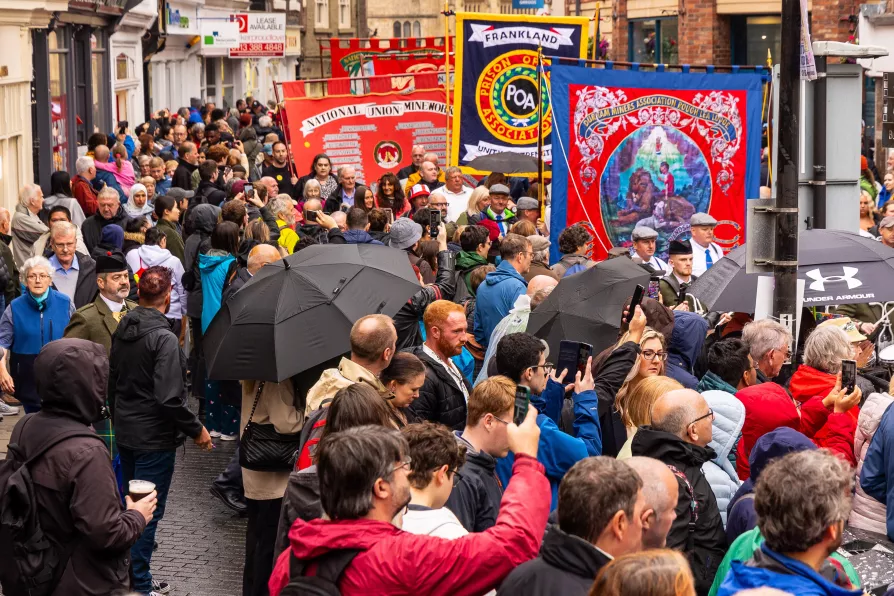From London’s holly-sellers to Engels’s flaming Christmas centrepiece, the plum pudding was more than festive fare in Victorian Britain, says KEITH FLETT

 Marchers at the Durham Miners' Gala, July 13, 2024
Marchers at the Durham Miners' Gala, July 13, 2024
A LABOUR government can deliver a step change in relations with the labour movement and deliver much-needed investment in working-class communities, Durham Miners’ Association president Stephen Guy believes — but it needs to be much more ambitious to achieve that.
“Ministers have been inviting trade union leaders in for discussions within a matter of days, so that’s welcome. But it’s not at the point where we want it to be.”
We meet in the County Hotel on the morning of the Miners’ Gala, in a special year given it is the 40th anniversary of the miners’ strike.

With 170,000 children living in poverty in north-east England and teachers leaving in droves over 20 per cent real-terms pay cuts since 2010, all while private companies siphon off billions, it is time to unite and fight for education, writes MATT WRACK

The Gala’s core message of working-class solidarity offers renewed hope and provides the antidote to the anti-worker policies of Reform UK, argues IAN LAVERY MP

Durham Miners’ Association general secretary ALAN MARDGHUM speaks to Ben Chacko ahead of Gala Day 2025

Ben Chacko talks to ALAN MARDGHUM of the Durham Miners Association about Reform UK‘s dangerous inroads into Durham’s long-standing Labour county council; why he cancelled his party membership; and the political class’s disconnect from working people










